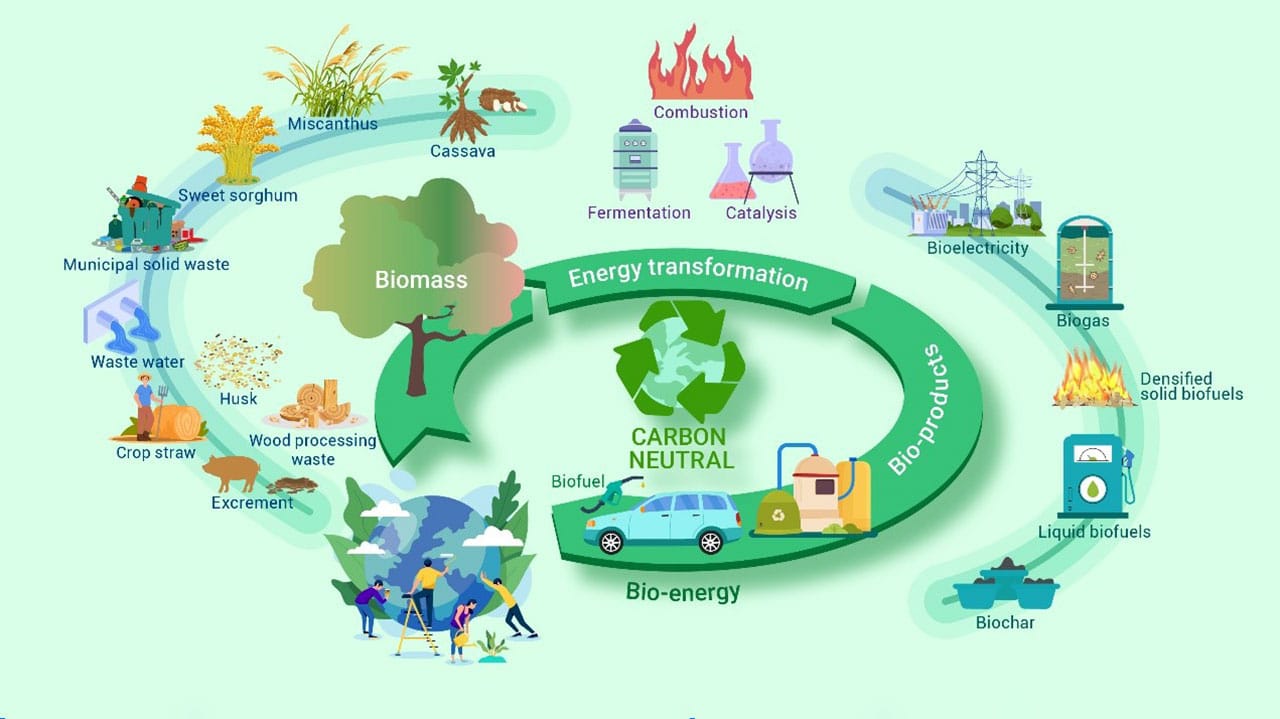
To reduce greenhouse gas emissions, biomass has been increasingly developed as a renewable and clean alternative to fossil fuels because of its carbon-neutral characteristics. It is a form of solar energy stored in biomass through plant photosynthesis.
China has been investigating the rational development and use of bioenergy for developing its clean energy and achieving carbon neutrality. It has abundant biomass resources. Previous studies have emphasized biomass resources for potential energy use in China. However, comprehensive analysis of energy conservation and carbon reduction for biomass through multi-source and multi-path energy conversion has not been systematically studied.
A Chinese research team constructed a comprehensive bioenergy accounting model with a multi-dimensional analysis that combines spatial analysis, life-cycle analysis, and multi-path analysis. The team includes Prof. XI Fengming’s group from the Institute of Applied Ecology of the Chinese Academy of Sciences (CAS), Prof. FU Jingying’s group from the Institute of Geographic Sciences and Natural Resources Research of CAS, and Prof. WANG Feng’s group from the Dalian Institute of Chemistry and Physics of CAS.
Using the accounting model, the researchers evaluated China’s bioenergy production and carbon emission reduction potentials. They found that China’s recoverable biomass resources are 49.09 EJ yr−1, mainly from organic waste (63.465%) and energy plants on marginal land (35.64%). Excluding other uses and losses of biomass, the potential for energy use is about 29.73 EJ.
Through efficient energy conversion, clean bioenergy production is 23.30 EJ, accounting for about 19% of China’s total primary energy production. The corresponding carbon reduction potential is 2535.32 Mt CO2-eq, accounting for about 25% of China’s carbon emissions. Prioritizing provinces rich in biomass resources, such as Guangxi, Sichuan, and Jiangsu, could be considered to optimize biomass development.
Additionally, attention should also be paid to bioelectricity, as it is an effective substitute for conventional counterparts in terms of energy conservation and emission reduction. This study reveals the energy conservation and carbon reduction benefits of multi-approach biomass energy utilization toward carbon neutrality, which will provide important data support for establishing China’s clean energy structural system and realizing carbon neutrality goals.
Journal reference:
- Jiaoyue Wang, Jingying Fu, Zhitong Zhao, Longfei Bing, Fengming Xi, Feng Wang, Jiang Dong, Shiyun Wang, Gang Lin, Yan Yin, Qinqin Hu. Benefit analysis of multi-approach biomass energy utilization toward carbon neutrality. The Innovation, 2023; DOI: 10.1016/j.xinn.2023.100423
Researchers evaluate biomass energy conservation and carbon reduction
Source: Tambay News

0 Comments